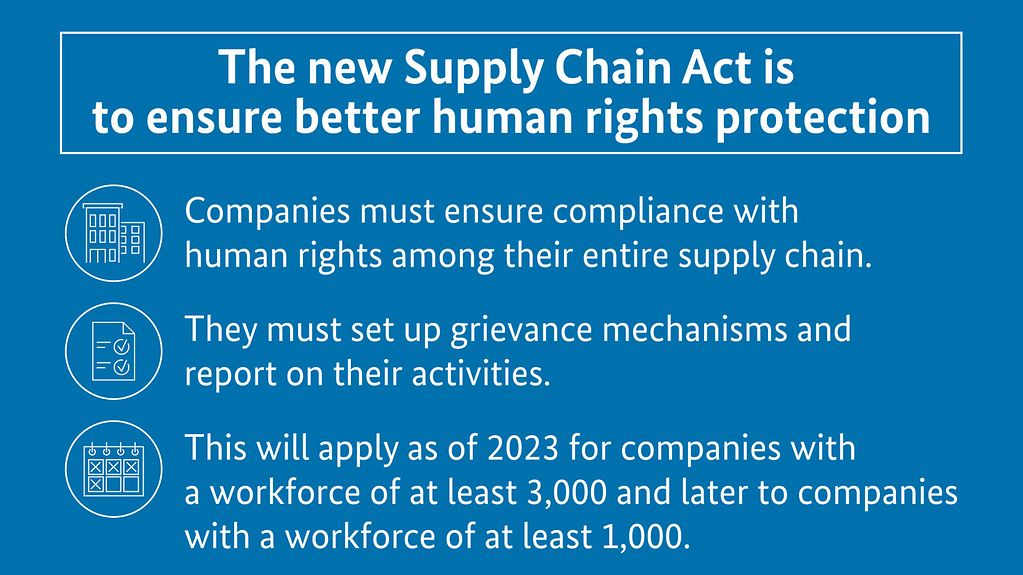Supply Chain Act (Lieferkettengesetz)
Garments come from Asia, cocoa and fruit from Africa, and coffee from South America – the new Supply Chain Act (Lieferkettengesetz) aims to protect the rights of people who produce goods for the German market. The Cabinet has now launched the pertinent bill.
1 min reading time

The new Supply Chain Act (Lieferkettengesetz) aims to protect the rights of people who produce goods for the German market.
The new Supply Chain Act is to ensure better human rights protection
- Companies must ensure compliance with human rights among their entire supply chain
- They must set up grievance mechanisms and report on their activities
- This will apply as of 2023 for companies with a workforce of at least 3,000 and later to companies with a workforce of at least 1,000
Photo: Bundesregierung
In commerce and in production basic human rights are frequently violated within global supply chains, with child labour, exploitation, discrimination and inadequate labour law protection. Environmental destruction is also covered by the bill – illegal logging, inappropriate use of pesticides, the contamination of water resources and air pollution.
Companies in Germany earn money from items produced in other parts of the world. That is why they also bear responsibility for ensuring that human rights are respected along their supply chains. The draft legislation on corporate due diligence in supply chains is to obligate German companies to better meet their global responsibility. The bill was adopted by the Cabinet on Wednesday.
The new legislation will also address competitive disadvantages suffered by companies that are already investing voluntarily in sustainable supply chain management.
What does the Supply Chain Act regulate?
Under the provisions of the new legislation, companies’ responsibility is to extend along their entire supply chain, graduated in line with the opportunities they have to exert an influence. Companies must realise their obligations in their own field of business and vis à vis their direct suppliers. Indirect suppliers are involved as soon as the company receives substantiated reports of human rights violations at that level.
The legislation translates into concrete provisions the way companies must comply with their due diligence obligations in the field of human rights. This involves analysing human rights-related risks, taking measures to prevent and mitigate human rights violations, setting up grievance mechanisms and reporting on their activities.
Protecting health and the environment
The bill also covers environmental protection, where environmental risks can lead to human rights violations. Environment-related obligations are established, based on two international conventions to prevent health and environmental hazards: the Minimata Convention on Mercury and the Stockholm Convention on Persistent Organic Pollutants.